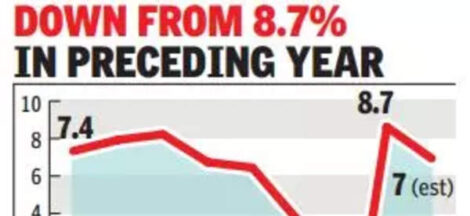By Amulya Ganguli
Mayawati’s comment that she is not interested in a post-poll pact with her latest ally, Ajit Jogi, in Chhattisgarh is yet another example of her singularly self-centred brand of politics which has little place for political partners outside her immediate objectives.
In Chhattisgarh, the objective begins and ends with fighting the elections and winning, if possible. As she has clarified, if she fails to win, she will sit in the opposition and not let her alliance with Jogi reach an understanding with another party – either the BJP or the Congress – for the sake of power.
At the same time, she has expressed confidence in the ability of the BSP-Janata Congress combine to gain a majority and form a government. Since this possibility is widely discounted because the BSP and the Janata Congress are pitted against two behemoths – the BJP and the Congress with their 40 per cent vote share each while the BSP has a mere 4.4 per cent and the extent of the Janata Congress’s base is not known since this is its first election – it is difficult to understand what made Mayawati tie-up with a seemingly marginal entity.
If her interest lay in winning a majority, she had a much better chance by aligning with the Congress. Since there is a mere one per cent difference in the votes secured by the BJP and the Congress in the last assembly election – BJP 41.06 per cent, the Congress 40.29 – an addition of the BSP’s vote share would have ensured an easy run for a Congress-BSP alliance.
But, then, she would not have been in the driver’s seat as now when Jogi is wholly dependent on her to make a mark in the state with his new party.
It is this objective of being in charge which made her say in U.P. that she will not accept an offer of sharing seats unless it was “respectable”. If her tie-up with the Samajwadi Party has survived, it is because Akhilesh Yadav has been willing to listen to her often extravagant and unilateral demands such as for 40 out of the 80 parliamentary seats in the state.
But since most of the other opposition leaders are not as accommodating as Akhilesh Yadav, there is continuing uncertainty about Mayawati’s presence in an anti-BJP mahagathbandhan (grand alliance) at the national level.
As it is, the mahagathbandhan is yet to get off the ground. Various leaders have been trying at various times to constitute it, but nothing credible has emerged. The latest to try his hand in forming it is Andhra Pradesh chief minister Chandrababu Naidu, who is willing to forget his party’s enmity with the Congress dating back to Rajiv Gandhi’s misbehaviour with then Andhra chief minister, T. Anjaiah, in 1982.
Mayawati’s dissatisfaction with the Congress has seemingly persisted ever since the days when Rahul Gandhi used to spend nights in Dalit huts to build his party’s bridges with the community which was once a part of the Congress’s Brahmin-Muslim-Harijan vote base in the 1950s and ‘60s.
The anger which Mayawati expressed against Rahul at the time, accusing him of washing himself with a special soap after spending time with the Dalits, may have become less intense, but does not appear to have fully disappeared. Hence, her hard bargaining with the Congress in Rajasthan, Madhya Pradesh and Chhattisgarh before calling off the talks.
Given her volatile temperament, opposition leaders will keep their fingers crossed lest she walks out of the understanding with the Samajwadi Party in U.P. as well since the alliance, which trounced the BJP in Phulpur, Gorakhpur and Kairana, remains the opposition’s only hope of drastically bringing down the BJP’s tally of Lok Sabha seats in U.P. from 73 (including two of its ally, the Apna Dal) and seriously hurting the saffron party’s prospects in 2019.
The opposition will also be wary of the role which the BJP will be playing behind the scene to simultaneously woo her and frighten her, as Digvijay Singh has said, with inquiries by the CBI or the Enforcement Directorate.
There is little doubt, however, that Mayawati has embarked on a crucial phase of her career where, if she fails to make an impact in the state elections, she may well have to make way for the next generation of Dalit leaders, of whom Chandrashekhar Azad “Ravan” of Saharanpur, U.P. and Jignesh Mevani of Gujarat are prominent figures.
What stands in their favour is their pronounced anti-BJP line which brings them closer to the mahagathbandhan unlike Mayawati who appears to be hedging her bets. Her hesitancy is strange considering that she has occasionally been projected as a prime ministerial candidate by journalists and politicians, most notably by the CPI(M) when it walked out of the Manmohan Singh government in 2008.
But what apparently makes her play for high stakes is a chip on her shoulder which impels her to be treated with respect. If she feels that she is not getting her due, she tends to plough a lonely furrow. (IPA Service)
The post Maverick Or Selfish Giant: Enigma Of Mayawati Politics appeared first on Newspack by India Press Agency.


